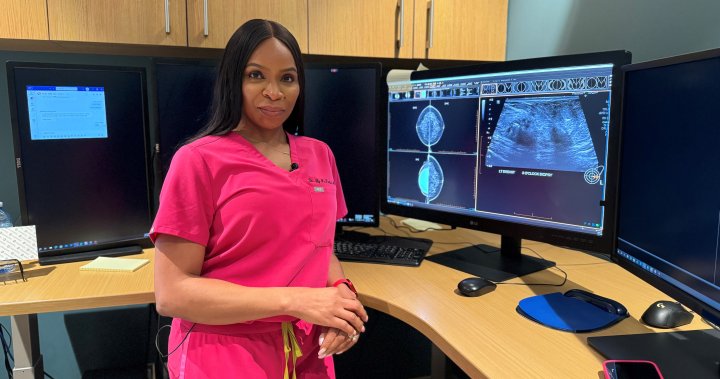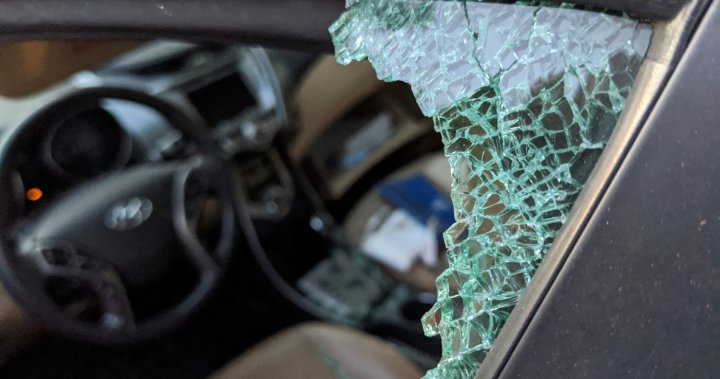Calgary radiologist and mammographer Dr. Ify Mckerlie has been at the forefront of breast health for decades, and she’s noticing a disturbing trend.
“Over the past 20 years doing this, women are being diagnosed with breast cancer younger and younger,” said Mckerlie. “It’s troubling.”
Recognizing the need for proactive measures, McKerlie has spearheaded the #Screen40 campaign, aimed at advocating for earlier breast cancer screening guidelines. Currently, Canadian guidelines recommend screening at age 50, based on outdated studies that fail to account for the changing landscape of breast cancer demographics.
Mckerlie wants to see this lowered to 40.
“The Canadian guidelines are based on a study that was from the 1980s. This study was flawed,” the radiologist said. She would like to see a more tailored approach that takes into account individual risk factors and demographic shifts.
Natalie Kwadrans’ story epitomizes this trend.
At the age of 46, just days after celebrating her birthday, she received the devastating news: stage 4 breast cancer.
“It’s the sentence no one ever expects,” Natalie said. “The doctor said, ‘I’m sorry, but you have breast cancer.’”
Get the latest Health IQ news.
Sent to your email, every week.
“You get told you’re too young to have breast cancer, and then to find out it was stage 4. How do you talk to your kids about that?”
#Screen40 aims to raise awareness not only about the importance of early screening but also about the disproportionate impact of breast cancer on racialized women.
McKerlie saaid that black women, in particular, are 40 per cent more likely to die from breast cancer, underscoring the urgent need for targeted interventions and support.
“In racialized women, breast cancer peaks in their 40s. In white women, it peaks in their 60s. These young women are leaving behind young children, their spouses, grandparents, families and friends,” Mckerlie says in the #Screen40 video. “This is unacceptable.”
There is a glimmer of hope in the form of advocacy and empowerment.
Kwadrans, despite her terminal diagnosis, said she remains steadfast in her resolve to make every moment count. She said along with change at the federal level, women need to empower themselves and advocate for their own health.
“If there is something wrong, get it checked. You have one body, you have one life,” the mother of two said.
© 2024 Global News, a division of Corus Entertainment Inc.




